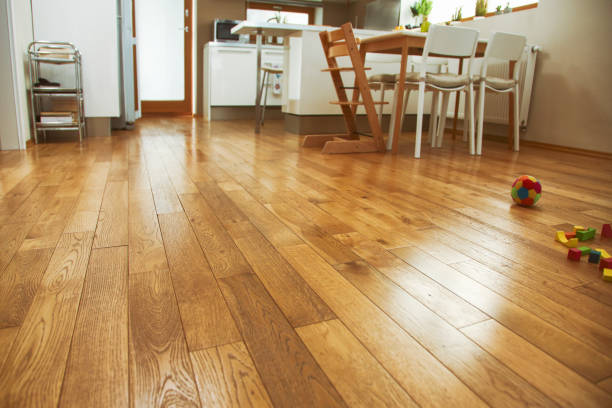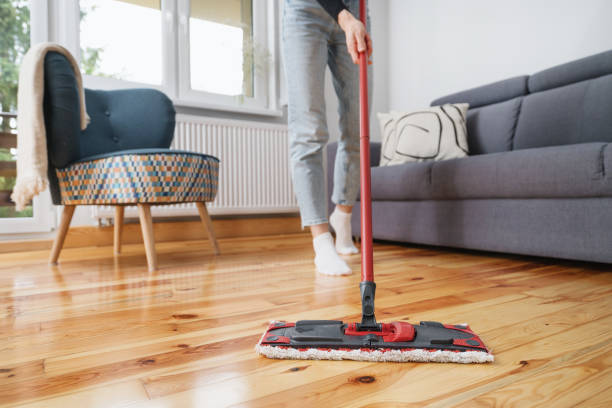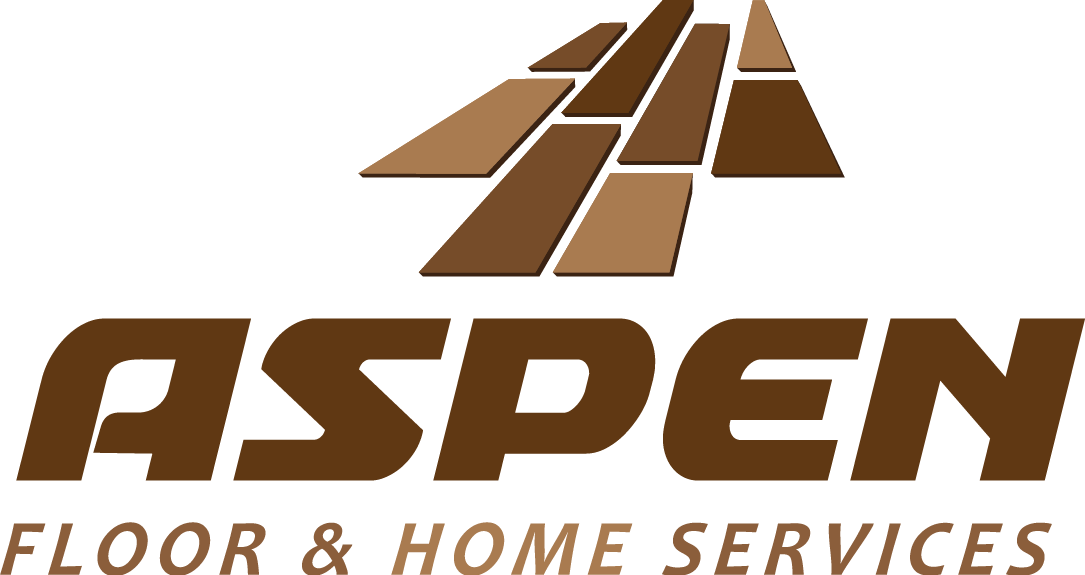When it comes to engineered hardwood flooring installation, Denver homeowners face unique challenges due to our mile-high city’s dry climate.
With low humidity levels and temperature fluctuations, it’s essential to take extra precautions during the installation process to ensure a beautiful, long-lasting finish.

As a locally owned and operated flooring company with over 20 years of experience serving the Denver metro area, we’ve mastered the art of engineered hardwood installation in our arid environment.
We’re here to share our top 3 essential tips for achieving a flawless finish that will stand the test of time in your Denver home.
First, let’s take a closer look at why engineered hardwood requires special consideration in Denver:
| Denver’s Climate Challenge | Impact on Engineered Hardwood |
|---|---|
| Low Humidity | Can cause cracking, splitting, and gaps between planks |
| Temperature Swings | Leads to expansion and contraction of wood |
| Dry Air | Draws moisture out of the wood, causing warping or cupping |
By understanding these unique challenges and taking proactive steps to address them, you can enjoy the beauty and durability of engineered hardwood floors in your Denver home for years to come.
Tip 1: Choose the Best Engineered Hardwood for Denver’s Climate
Not all engineered hardwood is created equal, especially when it comes to performance in Denver’s dry conditions.
To ensure a successful installation and long-lasting results, it’s crucial to select products that are specifically designed to withstand our climate.
When shopping for engineered hardwood, look for these key features:
| Feature | Benefit in Denver’s Climate |
|---|---|
| Thick Wear Layer | Provides stability and durability in dry conditions |
| Moisture-Resistant Core | Minimizes warping, cupping, and shrinking due to humidity changes |
| Stable Wood Species | Less prone to expansion and contraction in variable temperatures |
Some of the best engineered hardwood species for Denver homes include:
- White Oak: Highly stable and resistant to moisture changes
- Hickory: Dense, durable, and less likely to warp or crack
- Maple: Tight grain structure minimizes expansion and contraction
By investing in high-quality, climate-appropriate engineered hardwood, you’ll lay the foundation for a flawless finish that lasts.
Tip 2: Prepare Your Subfloor for a Flawless Installation
Even the best engineered hardwood won’t perform well if it’s installed on an inadequate subfloor.
In Denver homes, it’s common to encounter subfloor issues like uneven surfaces, moisture problems, or poor ventilation – all of which can lead to installation failures and unsightly flaws in your finished floors.
To set the stage for a flawless engineered hardwood installation, follow these subfloor preparation best practices:
- Inspect for moisture issues and address any leaks or humidity sources
- Ensure the subfloor is clean, dry, and free of debris
- Repair any cracks, holes, or unevenness in the surface
- Test for proper ventilation to prevent moisture buildup
- Install a moisture barrier or underlayment as needed for added protection
By properly preparing your subfloor, you’ll create a stable, moisture-controlled foundation that will help your engineered hardwood look and perform its best in Denver’s demanding climate.
Tip 3: Use Climate-Specific Installation Techniques for Denver Homes
Installing engineered hardwood in Denver requires a different approach than in other parts of the country with more moderate climates.
To prevent common issues like gaps, buckling, or unevenness, it’s essential to use techniques tailored to our dry, variable conditions.
Here are some key installation tips to ensure a flawless finish in Denver:
| Installation Tip | Benefit in Denver’s Climate |
|---|---|
| Acclimate Wood | Allows planks to adjust to home’s temperature and humidity levels |
| Use Proper Adhesive | Choose glue or floating method suitable for dry conditions |
| Leave Expansion Gaps | Provides room for natural expansion and contraction of wood |
| Monitor Indoor Climate | Maintain consistent temperature and humidity during and after installation |
By following these climate-specific installation techniques, you’ll allow your engineered hardwood to adapt to Denver’s unique conditions and achieve a seamless, long-lasting finish.
It’s also important to work with experienced professionals who understand the nuances of installing hardwood in our region and can expertly navigate any challenges that arise.
Maintaining Your Engineered Hardwood’s Flawless Finish in Denver
Once your engineered hardwood is installed, protecting your investment and maintaining that flawless finish requires a proactive approach in Denver’s dry climate.
Regular cleaning and maintenance, combined with careful humidity control, will help keep your floors looking their best for years to come.
Here are some essential tips for maintaining engineered hardwood in Denver:
- Sweep or vacuum regularly to remove dirt and debris
- Clean spills immediately to prevent moisture damage
- Use hardwood-safe cleaning products and avoid excessive water
- Place mats at entrances and felt pads under furniture to minimize scratches
- Maintain consistent humidity levels between 35-55% with a humidifier

By adopting a consistent maintenance routine and staying vigilant about moisture control, you can preserve the beauty and integrity of your engineered hardwood floors, even in Denver’s demanding climate.
Why Achieving a Flawless Finish Matters for Engineered Hardwood in Denver
Installing engineered hardwood flooring in Denver is an investment in your home’s beauty, durability, and value.
By choosing the right products, preparing your space properly, and using climate-appropriate techniques, you’ll achieve a flawless finish that showcases the natural elegance of the wood while providing long-lasting performance.
In a competitive real estate market like Denver’s, well-maintained hardwood floors can be a significant selling point, offering a strong return on investment.
More importantly, a flawless engineered hardwood installation ensures that you and your family can enjoy the warmth, comfort, and timeless appeal of your floors for years to come, without worrying about unsightly damage or costly repairs.
As Denver’s trusted engineered hardwood flooring experts, we’re committed to helping you achieve the perfect finish for your home.
By following these essential tips and working with our experienced team, you can confidently navigate the unique challenges of our mile-high climate and create a stunning, enduring foundation for your living spaces.
FAQs
How does Denver’s dry climate impact engineered hardwood flooring installation?
Low humidity and temperature fluctuations in Denver can cause engineered hardwood to crack, split, warp, or cup if not properly acclimatized and installed. It’s crucial to choose moisture-resistant products and use climate-appropriate techniques to ensure a flawless finish.
What is the best type of engineered hardwood for Denver’s climate?
Engineered hardwood with a thick wear layer, moisture-resistant core, and stable wood species like white oak, hickory, or maple is best suited for Denver’s dry conditions. These features minimize the risk of warping, cupping, and gapping caused by humidity changes.
What subfloor issues are common in Denver homes, and how can they be addressed before installation?
Denver homes often have uneven subfloors, moisture problems, or poor ventilation. Before installing engineered hardwood, inspect for and address any leaks, clean and level the surface, repair cracks or holes, test for proper ventilation, and install a moisture barrier or underlayment if needed.
What are essential tips for maintaining engineered hardwood in Denver’s dry conditions?
To maintain engineered hardwood in Denver, sweep or vacuum regularly, clean spills immediately, use hardwood-safe products, protect from scratches with mats and felt pads, and maintain consistent humidity levels between 35-55% with a humidifier.
How can you ensure a flawless finish during engineered hardwood flooring installation in Denver?
To achieve a flawless finish, choose climate-appropriate engineered hardwood, properly prepare the subfloor, acclimate the wood, use the correct adhesive for dry conditions, leave expansion gaps, monitor indoor climate during installation, and work with experienced professionals familiar with Denver’s unique challenges.

